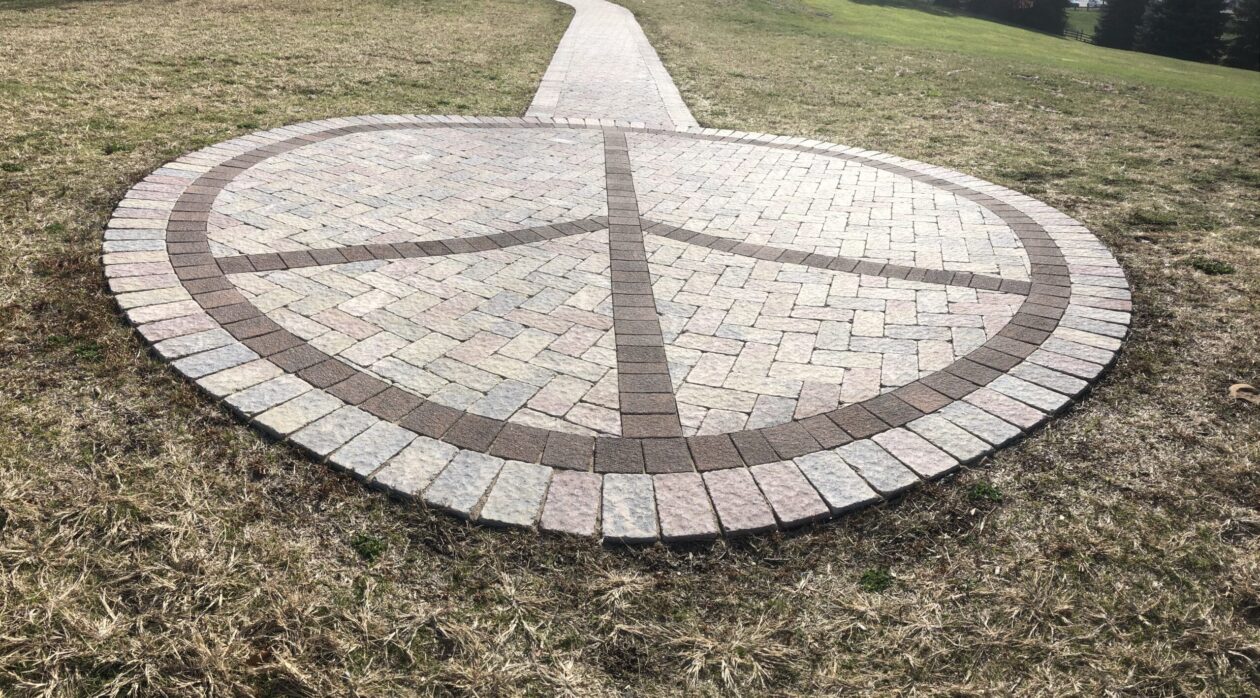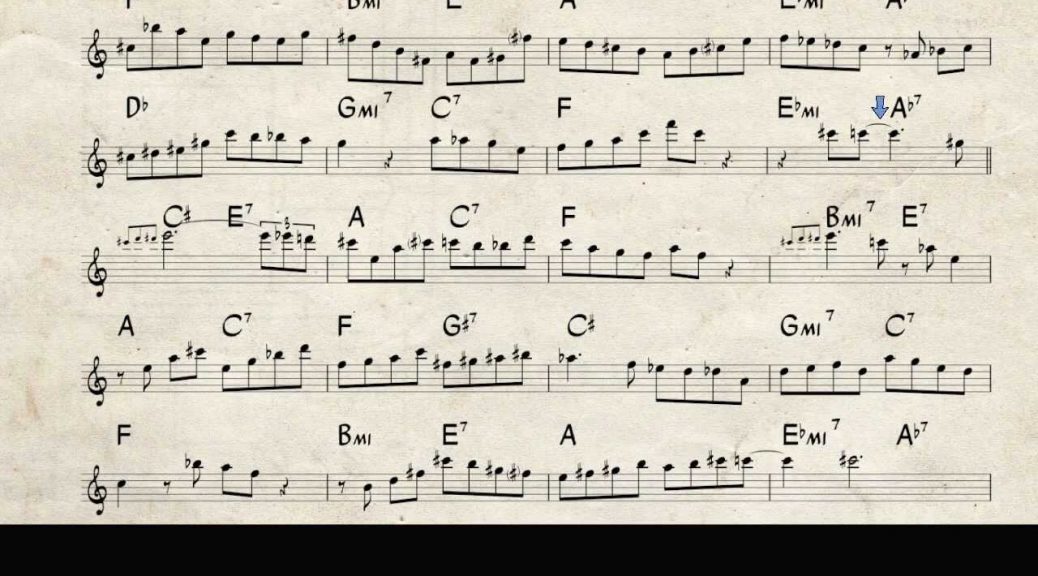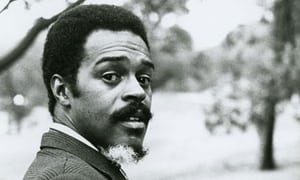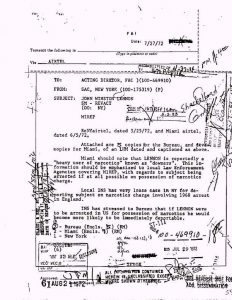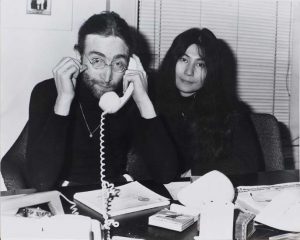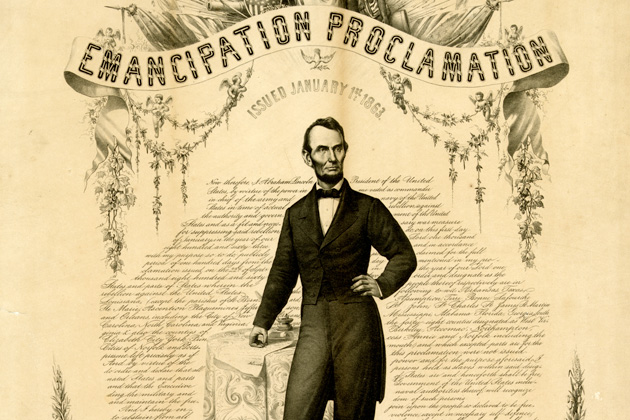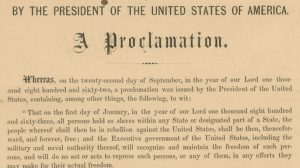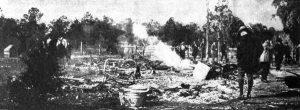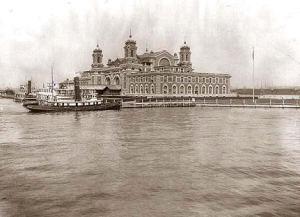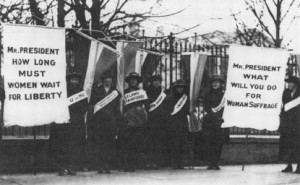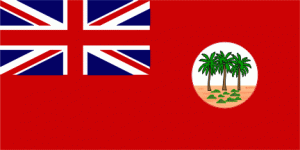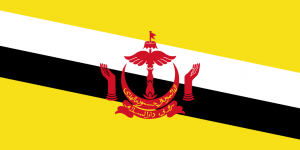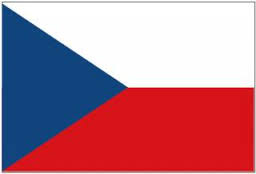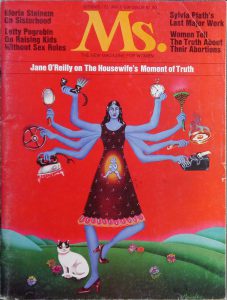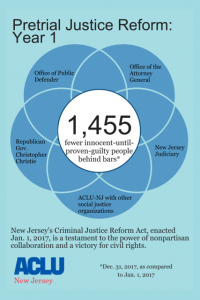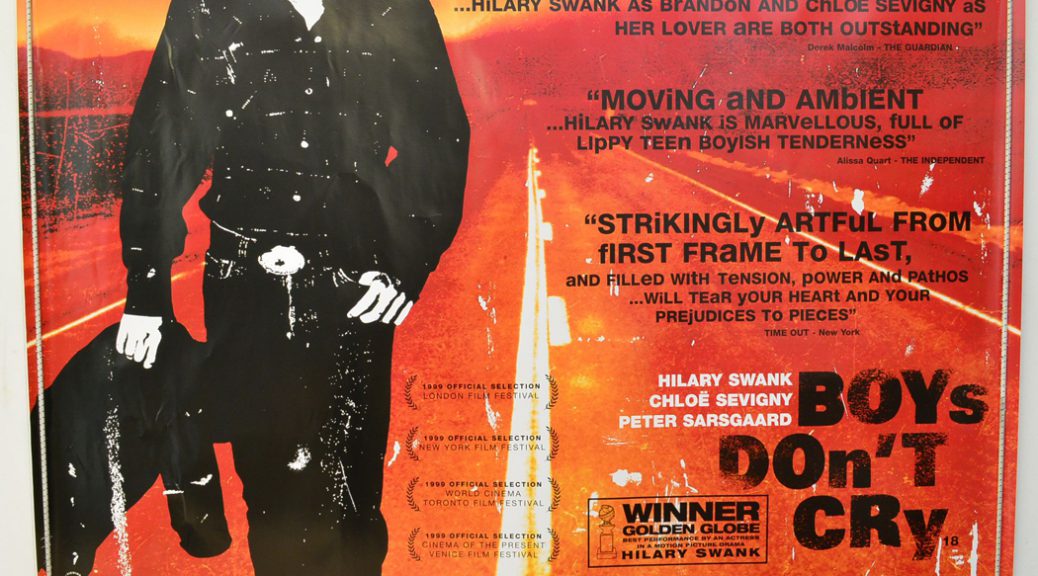December 31 Peace Love Art Activism
Emma Goldman
December 31, 1908, President Theodore Roosevelt pardoned William Buwalda (see April 26, 1908) , In January of 1909, Emma Goldman announced that anarchists across the country had raised one thousand dollars for Buwalda to begin a new life after prison. (see Emma Goldman)
December 31 Peace Love Art Activism
Women’s Health
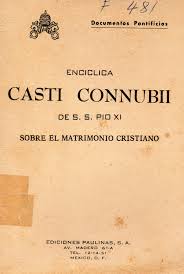 December 31, 1930: Pope Pius XI promulgated the papal encyclical entitled Casti Connubii (“of chaste wedlock”). It prohibited Catholics from using any form of artificial birth control and reaffirmed the prohibition on abortion. The encyclical stated, in part: “ . . . any use whatsoever of matrimony exercised in such a way that the act is deliberately frustrated in its natural power to generate life is an offense against the law of God and of nature, and those who indulge in such are branded with the guilt of a grave sin.” (see April 6, 1931)
December 31, 1930: Pope Pius XI promulgated the papal encyclical entitled Casti Connubii (“of chaste wedlock”). It prohibited Catholics from using any form of artificial birth control and reaffirmed the prohibition on abortion. The encyclical stated, in part: “ . . . any use whatsoever of matrimony exercised in such a way that the act is deliberately frustrated in its natural power to generate life is an offense against the law of God and of nature, and those who indulge in such are branded with the guilt of a grave sin.” (see April 6, 1931)
Birth control challenge
December 31, 2013: Supreme Court Justice Sonia Sotomayor granted a last-ditch plea from Catholic groups to block a birth control mandate in the new health care law for religious organizations, just hours before it was to have gone into effect. Sotomayor issued the stay at the request of an order of Catholic nuns in Colorado, the Little Sisters of the Poor Home for the Aged. They are part of a larger effort by Catholic-affiliated groups from around the nation to halt provisions of the Affordable Care Act that require companies — regardless of religious beliefs — to provide contraceptives to their employees. The groups want the mandate halted while the court considers a legal challenge, brought by the for-profit company Hobby Lobby, arguing that the requirement violates their religious liberties. [NYT report] (WH, see January 3, 2014; ACA, see June 30, 2014)
December 31 Peace Love Art Activism
Vietnam
Viet Minh
December 31, 1944: the Viet Minh claimed to have 500,000 members. (see March 9, 1945)
Battle of Binh Gia
December 31, 1964: in an attempt to recover the four American bodies killed in the helicopter crash, 12 South Vietnamese soldiers were killed in an ambush. The bodies will be recovered, but only after 196 South Vietnamese Marines died in the resulting fire fights. [Wiki article] (see January 1 – February 7, 1965)
Bloodiest year in Vietnam
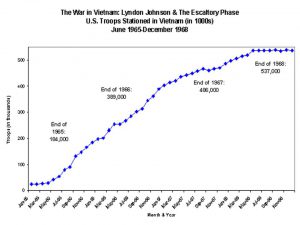 December 31, 1968: the bloodiest year of the war came to an end. At year’s end, 536,040 American servicemen were stationed in Vietnam, an increase of over 50,000 from 1967.
December 31, 1968: the bloodiest year of the war came to an end. At year’s end, 536,040 American servicemen were stationed in Vietnam, an increase of over 50,000 from 1967.
Estimates from Headquarters U.S. Military Assistance Command Vietnam indicated that 181,150 Viet Cong and North Vietnamese were killed during the year. However, Allied losses were also up: 27,915 South Vietnamese, 14,584 Americans (a 56 percent increase over 1967), and 979 South Koreans, Australians, New Zealanders, and Thais were reported killed during 1968. Since January 1961, more than 31,000 U.S. servicemen had been killed in Vietnam and over 200,000 U.S. personnel had been wounded. (see 1968 Vietnam War for more) (next Vietnam, see January 16, 1969)
December 31 Peace Love Art Activism
December 31 Music et al
News Music
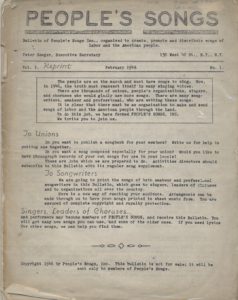 December 31, 1945: Pete Seeger, Alan Lomax, and Lee Hays founded People’s Songs. They published the first quarterly edition in February 1946. In it, Seeger wrote: “The people are on the march and must have songs to sing. Now in 1946, the truth must reassert itself in many singing voices. There are thousands of unions, people’s organizations, singers and choruses who would gladly use more songs. There are many songwriters, amateur and professional, who are writing these songs. It is clear that there must be an organization to make and send songs of labor and the American people through the land. To do this job we formed People’s Songs, INC. We invite you to join us.” (see News Music for more about NM)
December 31, 1945: Pete Seeger, Alan Lomax, and Lee Hays founded People’s Songs. They published the first quarterly edition in February 1946. In it, Seeger wrote: “The people are on the march and must have songs to sing. Now in 1946, the truth must reassert itself in many singing voices. There are thousands of unions, people’s organizations, singers and choruses who would gladly use more songs. There are many songwriters, amateur and professional, who are writing these songs. It is clear that there must be an organization to make and send songs of labor and the American people through the land. To do this job we formed People’s Songs, INC. We invite you to join us.” (see News Music for more about NM)
Monkees
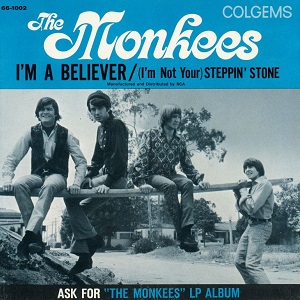 December 31, 1966 – February 17, 1967: “I’m a Believer” by the Monkees #1 on the Billboard Hot 100.
December 31, 1966 – February 17, 1967: “I’m a Believer” by the Monkees #1 on the Billboard Hot 100.
The Beatles
December 31, 1970: Paul McCartney sued the other three Beatles to dissolve the partnership and gain control of his interest. The suit touched off a bitter feud between McCartney and the others, especially his co-writer on many of the Beatles compositions, John Lennon. (see Beatles Officially Legally End) (next Beatles, see (see April 9, 1971)
December 31 Peace Love Art Activism
Immigration History
Bracero Program
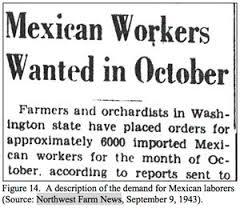 December 31, 1964: the Mexican Farm Labor Program, also known as the Bracero Program, ended. It was the result of a series of agreements between Mexico and the United States in response to the demand for agricultural labor during World War II. The Mexican workers were called braceros because they worked with their arms and hands (bracero comes from the Spanish brazo, or arm). The bilateral agreement guaranteed prevailing wages, health care, adequate housing, and board. … Nationally, the Bracero Program continued until December 31, 1964, with nearly 4.5 million Mexicans making the journey during the program’s twenty-two year existence. Braceros entered the United States under six-month to twelve-month contracts and were assigned to regions throughout the country. Once the contract expired, each bracero was required to return to Mexico and sign another contract in order to return to the United States to work. (Immigration, see October 3, 1965; Labor, see February 26, 1965)
December 31, 1964: the Mexican Farm Labor Program, also known as the Bracero Program, ended. It was the result of a series of agreements between Mexico and the United States in response to the demand for agricultural labor during World War II. The Mexican workers were called braceros because they worked with their arms and hands (bracero comes from the Spanish brazo, or arm). The bilateral agreement guaranteed prevailing wages, health care, adequate housing, and board. … Nationally, the Bracero Program continued until December 31, 1964, with nearly 4.5 million Mexicans making the journey during the program’s twenty-two year existence. Braceros entered the United States under six-month to twelve-month contracts and were assigned to regions throughout the country. Once the contract expired, each bracero was required to return to Mexico and sign another contract in order to return to the United States to work. (Immigration, see October 3, 1965; Labor, see February 26, 1965)
Trump’s Wall
December 31, 2018: “An all concrete Wall was NEVER ABANDONED, as has been reported by the media,” President Trump tweeted ahead of New Year’s Eve. “Some areas will be all concrete but the experts at Border Patrol prefer a Wall that is see through (thereby making it possible to see what is happening on both sides). Makes sense to me!”
The president was evidently reacting to a Los Angeles Times interview in which Kelly said, “To be honest, it’s not a wall.”
“The president still says ‘wall’ – oftentimes frankly he’ll say ‘barrier’ or ‘fencing,’ now he’s tended toward steel slats. But we left a solid concrete wall early on in the administration, when we asked people what they needed and where they needed it,” Kelly told the Times. (IH & TW, see January 5, 2019)
December 31 Peace Love Art Activism
US Labor History
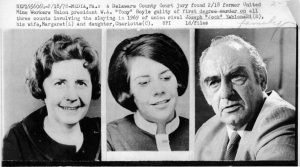 December 31, 1969: Joseph A. Yablonski, an unsuccessful candidate for the presidency of the United Mine Workers of America, was shot to death with his wife and daughter in their Clarksville, Pa., home by hitmen acting at the orders of UMWA president Tony Boyle. (see January 22, 1970)
December 31, 1969: Joseph A. Yablonski, an unsuccessful candidate for the presidency of the United Mine Workers of America, was shot to death with his wife and daughter in their Clarksville, Pa., home by hitmen acting at the orders of UMWA president Tony Boyle. (see January 22, 1970)
December 31 Peace Love Art Activism
BLACK HISTORY
Emmett Till
December 31, 1980: J. W. Milam, the murderer of Emmett till, died in Mississippi of cancer. (next BH, see March 20, 1981 ; see ET for expanded chronology)
Medgar Evers assassination
December 31, 1990: in a move intended to speed his transfer from Tennessee to Mississippi, Byron de la Beckwith was arrested on a governor’s warrant charging him with first-degree murder and was jailed without bond. (NYT article) (next BH & Evers, see January 14, 1991)
December 31 Peace Love Art Activism
Native Americans
December, 31, 1991: Federal district judge Paul Benson denied a new trial for Leonard Peltier. Benson, who presided over Peltier’s original trial, accepted Magistrate Karen Klein’s recommendation that no new trial be granted. Peltier’s lawyers argued that the Government changed its case, first saying Mr. Peltier killed the agents, Jack Coler and Ronald Williams, and then later saying it could prove only that he aided and abetted in the shootings. The change in strategy prevented Mr. Peltier from properly defending himself, his lawyers argued. (next Peltier, see February 11 – July 15, 1994; next Native Americans, see below)
Bruce Cockburn – “Indian Wars” (1991)
Out in the desert where the wind never stops
A few simple people try to grow a few crops
Trying to maintain a life and a home
On land that was theirs before the Romans thought of Rome
A few dozen survivors, ragged but proud
With a few woolly sheep, under gathering cloud
It’s never been easy, or free from strife
But the pulse of the land is the pulse of their life
You thought it was over but it’s just like before
Will there never be an end to the Indian wars?
It’s not breech-loading rifles and wholesale slaughter
It’s kickbacks and thugs and diverted water
Treaties get signed and the papers change hands
But they might as well draft these agreements in sand
Noble Savage on the cinema screen
An Indian’s good when he cannot be seen
And the so-called white so-called race
Digs for itself a pit of disgrace
You thought it was over but it’s just like before
Will there never be an end to the Indian wars?
Columbus protests
In 1992: the celebration of the 500th anniversary of the arrival of Christopher Columbus to the Americas prompted protests from many Native American tribes and supporters, prompting cities including Denver and San Francisco to stop their quincentenary celebrations. (next NA, see Jan 11)
LGBTQ
December 31, 1993: Brandon Teena, a 21-year-old female-born transgender, was slain along with two other people at a farmhouse near Humboldt, Neb. Convicted murderer John Lotter is on Nebraska’s death row; co-defendant Thomas Nissen is serving a life sentence. The case inspired the 1999 movie “Boys Don’t Cry.” (next LGTBQ see May 20, 1996)
Utah fights same -sex marriage
December 31, 2013: Utah took its fight against same-sex marriage to the U.S. Supreme Court, asking Justice Sonia Sotomayor to suspend a lower court ruling that allowed same-sex weddings to go ahead in the heavily Mormon state. [NYT report] (next LGTBQ see January 6, 2014)
December 31 Peace Love Art Activism
ADA
Fernald School
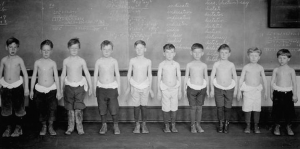 December 31, 1998: a group of former students from the Fernald School in Waltham, Mass. who ate radioactive oatmeal as unwitting participants in a food experiment in 1953 shared a $1.85 million settlement from Quaker Oats and the Massachusetts Institute of Technology. [CBS News report]
December 31, 1998: a group of former students from the Fernald School in Waltham, Mass. who ate radioactive oatmeal as unwitting participants in a food experiment in 1953 shared a $1.85 million settlement from Quaker Oats and the Massachusetts Institute of Technology. [CBS News report]
December 31 Peace Love Art Activism
Sara Jane Moore
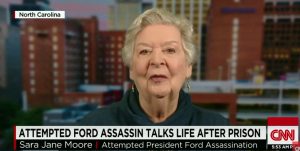 December 31, 2007, officials released Sara Jane Moore, a 1970s radical who tried to assassinate President Gerald R. Ford in 1975, on parole from a federal prison in Northern California. (for more, see Lynette Squeaky Fromme) (see August 16, 2009)
December 31, 2007, officials released Sara Jane Moore, a 1970s radical who tried to assassinate President Gerald R. Ford in 1975, on parole from a federal prison in Northern California. (for more, see Lynette Squeaky Fromme) (see August 16, 2009)
December 31 Peace Love Art Activism
Sexual Abuse of Children
December 31, 2013: the Archdiocese of St. Louis was ordered to release the names of priests accused of sex abuse throughout the past 20 years. The priests’ names will not be made public, but will remain sealed and will only be seen by the plaintiff and her lawyer in an ongoing civil case against the Archdiocese. (see February 5, 2014)
December 31 Peace Love Art Activism
Fourth Amendment
December 31, 2013: Judge Mary S. Scriven of the United States District Court in Orlando struck down as unconstitutional a Florida law that required welfare applicants to undergo mandatory drug testing, setting the stage for a legal battle that could affect similar efforts nationwide.
Scriven held that the testing requirement, the signature legislation of Gov. Rick Scott, a Republican who campaigned on the issue, violated the protection against unreasonable searches.
“The court finds there is no set of circumstances under which the warrantless, suspicionless drug testing at issue in this case could be constitutionally applied,” she wrote. The ruling made permanent an earlier, temporary ban by the judge.
Mr. Scott, who had argued that the drug testing was necessary to protect children and ensure that tax money was not going to illegal drugs, said that the state would appeal the ruling. (see June 25, 2014)
December 31 Peace Love Art Activism
Stop and Frisk Policy
2013
December 31, 2013: NYC police stopped 191,851 people in 2013. A drop of 72%. (see January 30. 2014)
2014
December 31, 2014: NYC police stopped 45,787 people in 2014, a drop of 93%. (685,784 people were stopped in 2011) (see March 2, 2015)
December 31 Peace Love Art Activism
DEATH PENALTY
Maryland Governor Martin O’Malley
December 31, 2014: Maryland Governor Martin O’Malley commuted the death sentences of the last four inmates remaining on death row, effectively ending capital punishment in the state. Maryland lawmakers had voted two years ago to abolish the death sentence for future offenders beginning 2013. O’Malley said that leaving the last four prisoners to await the death penalty “does not serve the public good….In a representative government, state executions make every citizen a party to a legalized killing as punishment.” (see January 15, 2015)
Death Penalty Information Center
December 31, 2016: according to a year-end study from the Death Penalty Information Center, the number of executions reached its lowest point in a quarter-century because the inability of States to buy lethal drugs,. The study found that executions went from a high of 98 in 1998, to only 20 in 2016. 2016 was also the fewest death penalty sentences since 1972, when the US Supreme Court case of Furman v Georgia led to a four-year-long moratorium on capital punishment sentencing. There were approximately 30 death sentences in 2016, down 90% since 1996. (see February 22, 2017)
December 31 Peace Love Art Activism
Space
 December 31, 2018: scientists at the Johns Hopkins Applied Physics Laboratory (Laurel, MD) celebrated the moment that NASA’s New Horizons spacecraft made its closest approach to a small, icy world nicknamed Ultima Thule.
December 31, 2018: scientists at the Johns Hopkins Applied Physics Laboratory (Laurel, MD) celebrated the moment that NASA’s New Horizons spacecraft made its closest approach to a small, icy world nicknamed Ultima Thule.
Almost 10 hours later, the New Horizons team received confirmation that the spacecraft had executed its planned observations flawlessly. [NYT article] (see February 13, 2019)
December 31 Peace Love Art Activism
Nuclear/Chemical News
December 31, 2019: North Korea’s its official media reported that leader, Kim Jong-un, said his country no longer felt bound by its self-imposed moratorium on testing nuclear weapons and long-range ballistic missiles, the strongest indication yet that the country could soon resume such tests. [NYT article] (next N/C N, see January 5, 2020)
December 31 Peace Love Art Activism
Cannabis
Impeded research
December 31, 2019: Francis Collins, director of the National Institutes of Health (NIH), said that marijuana’s status as a Schedule I drug inhibits studies into the plant and prevents scientists from researching the effects of cannabis that consumers were obtaining from state-legal dispensaries in a growing number of states.
Collins discussed the limitations imposed by the federal drug scheduling system during an appearance on C-SPAN’s Newsmakers saying that while he shares concerns about the potential health implications of smoking marijuana, research into the risks and benefits of cannabis is being impeded by current policy.
“Frankly, we know far too little about the benefits and risks of smoked marijuana,” Collins said. “There have been very few studies that have actually rigorously tested that.” [MM article]
Clearing records
December 31, 2019: one day before legal recreational marijuana sales launched in Illinois, Gov. J. B. Pritzker (D announced that his office was clearing the records of more than 11,000 people who had previously been convicted of simple cannabis possession.
Gov Pritzker said the move “sets us apart” from other states that have legalized marijuana for adult-use and that “Illinois is putting equity first, clearing thousands of convictions and giving individuals & their families a new lease on life.” [MM article] (next C, see, January 1, 2020; see CCC for expanded chronology)
December 31 Peace Love Art Activism
